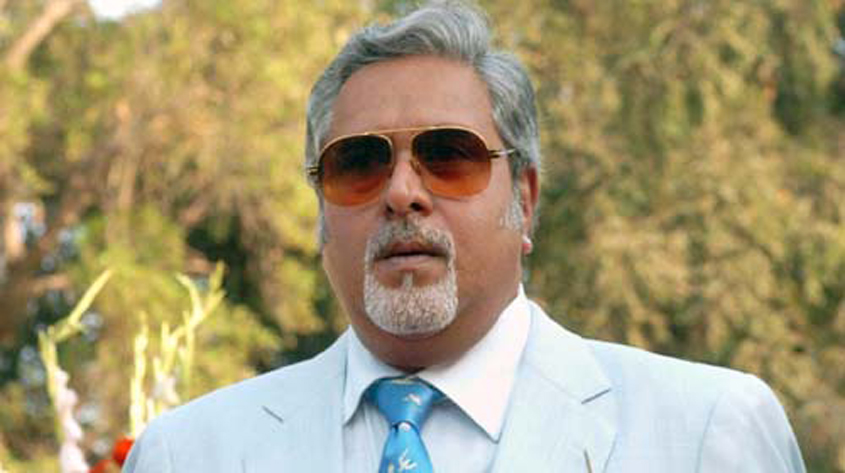Many in the daffodil resplendent surroundings of the Westminster are touting the case of Vijay Mallya as a barometer for the influence that Prime Minister Narendra Modi’s India has come to wield, building no doubt on the economic growth of the past decade and riding the new realities that confronts the UK in its post Brexit avatar. Coming, as it does, on the heels of the recent buzz created by Shashi Tharoor’s visit, India seems to more on the minds of the Londoners than in much of the recent past. The Mallya case has received due coverage in the British press including in the popular and ideologically opposed Daily Mail and the Guardian.
Reportedly fast tracked on the express request of the PM Modi when the British PM, Theresa May called on him in New Delhi last November, Vijay Mallya was arrested and speedily bailed out on a hefty security of £650,000, starting, as many have rightly identified, a slow and strenuous and often uncertain path to his return to India. He had left India in March 2016, amidst charges of wilful defaulting of a Rs 9,000 crore bank loan and holding off payment of salaries of his 3,000 Kingfisher Airlines staff, while continuing with a lifestyle of incredible extravagance.
With only one successful extradition of Samirbhai Vinubhai Patel, wanted in connection with a 2002 Gujarat riots case, since the signing of the UK-India Extradition Treaty in 1992, and another 16 cases pending with the British government, India should not hold its breath for a speedy or a successful extradition of Mallya. The human rights angle based on rather appalling conditions within Indian prisons, its slow protracted legal process and the prevalence of capital punishment will offer the strongest bulwark of defence to Mallya’s existing lines of political witch-hunt. Though the political angle may be significantly watered down by the very eclectic nature of Mallya’s past political affiliations, when he was supported at different times by the Congress, BJP as well as the SP. While being used lavishly by the current dispensation in Delhi as the poster boy for their resolve to bring back black money, India and its representatives Crown Prosecution Service, may do well to contend that such a national hype is a developmental rather than a political or ideological issue and cuts across party lines.
The extradition process will now chug along with Theresa May’s government wielding limited influence, thanks to the sharp separation of powers between the executive and the judiciary in the UK and its strong emphasis on human rights. Also if the British legal procedures indeed wrap up before the UK exits the EU, Mallya may appeal to the European courts, which has a still less liberal record with extradition requests. The outcome of this extradition process notwithstanding, India should look beyond the Mallaya case. There are larger issues at stake, worthy of India’s leadership.
Only one successful extradition of Samirbhai Vinubhai Patel, wanted in connection with a 2002 Gujarat riots case, has taken place since 1992. 16 cases are pending.
The “King of Good Times” continued to have a good time, helped no doubt by the British residency laws, despite the temporary impounding of his passport, extremely cautious and careful deportation (and also extradition treaty) procedures. Vijay Mallya, like several other billionaires, had spread his wealth globally, acquiring global properties and assets and stakes in various businesses. It is reported that he finalised his 10 million dollar deal on a penthouse in the Trump Tower in New York early 2016, even as the courts in India issued a non-bailable warrant.
Vijay Mallya’s story is quite quintessential of some of the national and global capitalist cronyism that thrives with impunity, often going unpunished and now increasingly being enthroned. It is important as it profiles the cosy comfortable, guiltless world of a global corporate fugitive. Therein lies the next opportunity for leadership and soft power of PM Modi.
Nationally, PM Modi seems to have done well to cash in on the public opinion and enacted the much-favoured bankruptcy law, with a potential of being a game changer, and significantly improving the “ease to doing business” in India. Now, he could put the weight of India behind the agenda of global financial clean-up, at the centre of which is the dismantling of the tax havens, which cause India an annual loss in billions of dollars and allowed Vijay Mallya, using the offshore accounts and ventures (a British Virgin Islands firm named Venture New Holding Limited) route, to siphon off money out of India. According to an Oxfam report, such tax havens cost the world 20 trillion dollars, money which could feed, clothe, educate and treat the impoverished and the underprivileged globally, money that actually belongs to the ordinary taxpayers. India is among the biggest losers to the broken global corporate tax system, along with other G20 countries including the US, UK, Germany, Japan, France, Mexico and Spain.
The British PM may be interested in joining India’s advocacy. To UK, this costs £25bn and £85bn. Ironically, the UK heads the world’s biggest financial secrecy network, spanning its Crown Dependencies and Overseas Territories and centred on the City of London—but this in fact provides an unparalleled opportunity to help end the era of tax havens. After all, PM May’s predecessor David Cameron had put tackling corporate tax-avoidance at the top of the G8 agenda.
This agenda lies at the very heart of PM Modi’s resolve to bring the ill-gotten moolah back to India and with about 1/3 of the world’s poorest residing in India, this global challenge is worth India’s attention and stature.

